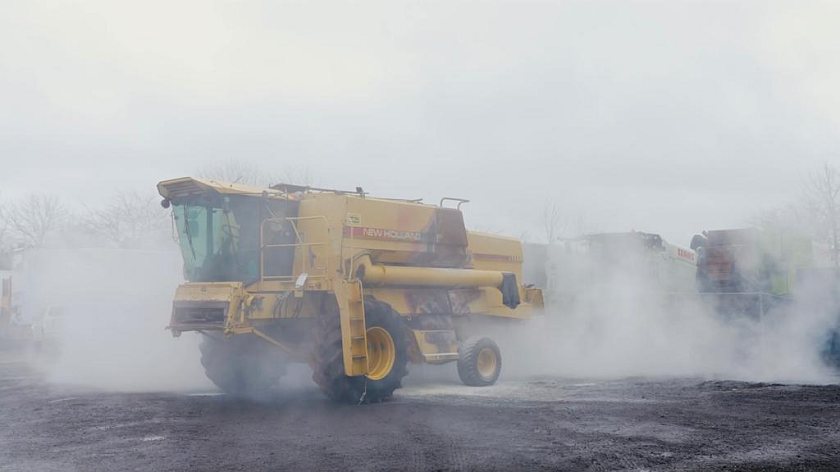
Farmers have been told to take 'extreme care' to avoid fires on their farms as large swathes of the country move into drought status following prolonged dry weather.
As harvest continues and another wave of hot, dry weather begins to hit the countryside, NFU Mutual has warned that a spark on a farm could "quickly become a raging blaze which endangers lives".
It comes after the Environment Agency confirmed that the threshold had been met to move parts of the South West, parts of Southern and Central England, and the East of England into drought status.
Prolonged dry weather this year has led to exceptionally low river flows and reservoir levels falling across much of the country.
High temperatures, including this week’s heatwave, continue to add additional pressures on the farming industry, the water environment and wildlife.
This comes as NFU Mutual revealed its claims estimates for last year, which suggest farm fires cost over £97 million in 2021, an increase on 2020.
The current heatwave will also increase the risk of agricultural machinery fire claims - these claims are estimated to have cost over £37m last year.
The rural insurer saw a 35 percent increase in the number of combine fire claims during last year's harvest.
Explaining the risks, Evita van Gestel of NFU Mutual said: “Dusty, tinder dry conditions combined with hot moving parts, lots of electrical wiring and a tank full of diesel provide everything that is needed to turn a spark into a violent fire.
“Not only can this result in the loss of hundreds of thousands of pounds worth of agricultural machinery, but it can also damage or destroy nearby crops and buildings and disrupt harvest at a time when farmers can least afford it.
“Most importantly, the current conditions mean a fire can quickly become a raging blaze which endangers lives."
A fire prevention checklist has been released by NFU Mutual, which urges farmers to maintain regular cleaning and maintenance of machinery to avoid destructive fires.
How can I improve fire safety?
• Have a plan in place in the event of fire including a system for keeping in contact with lone workers and anyone working or living on farm
• Identify hazards, such as fuel and fertiliser stores or dry straw and grain, and take steps to isolate these where possible
• Keep vehicles away from these stored materials, as hot engines could ignite dry materials nearby. When storing vehicles inside with other materials, keep the vehicles sufficiently distant from combustibles.
• Keep electrical wiring inspections up to date
• Clear workshops of combustible items – maintain good housekeeping
• Keep mobile phones on you at all times – it’s no use to you if it’s left in a tractor or pickup cab
• Keep a bowser filled with water on hand and make sure all workers can access this water supply, and be prepared to create a fire break in the event of a crop fire
• Use the What3Words App to help emergency services can find your location easily
• Remind staff to keep well-hydrated, take sufficient rest breaks and monitor for fatigue, stress and mental ill health symptoms.
• Ensure planned preventative maintenance is up to date and in accordance with manufacturers’’ service schedules before using any machinery
• Fit a suppression system that meets P-mark status to contain, extinguish and prevent fire
• Regularly clean out dust and chaff from hot spots and check the machine over when you finish use for the day
• You can use a mobile compressor (or a fixed one if fitted to the combine) to regularly blow away debris from the machine, but only do so if the exit pressure is reduced (as a guide 30psi/2.1 bar is effective at cleaning).
• Switch off engines and ensure moving parts have stopped before clearing blockages or carrying out maintenance
• Always stop to investigate hot-running engines or bearings
• Make sure drivers are aware of the locations and heights of power lines and check that you will safely pass under wires
• Keep a fire extinguisher on the combine – and ensure it is regularly maintained
